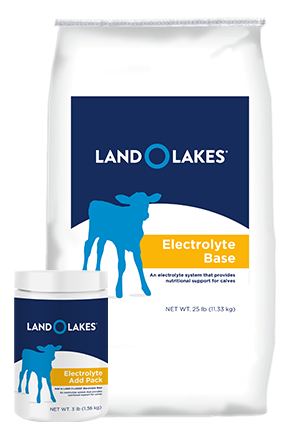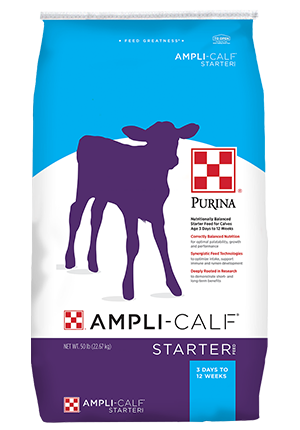
Navigating Market Volatility With Dairy Revenue Protection
Cow : Management

Tim Patchin, MPS, PAS
Risk Management Specialist for Land O’Lakes
The onset of the new year witnessed significantly lower Class III prices than previous years, compressing producer margins and elevating financial strain on farms. In 2024, dairy farmers may be looking to stabilize their income and navigate the unpredictable market by enrolling in the Dairy Revenue Protection (DRP) program.
Up to 95% of expected quarterly revenue may be covered through the DRP program. At the end of the policy period, if the actual milk revenue is below the final revenue guarantee, the producer may receive a payment for the difference between the final revenue guarantee and the actual milk revenue multiplied by the share and protection factor.
Producers can choose between two revenue pricing options under DRP: class or component. Class pricing bases revenue protection on regionalized revenue constructed with Class III and Class IV milk prices, allowing producers to establish their price guarantee per hundredweight. At the same time, component pricing is based on milk component production, including customizable butterfat and protein percentages with a fixed percentage of other solids at 5.7%.
Historical programs like Dairy Margin Coverage (DMC) have limitations, but new programs like DRP aim to fill these gaps and offer a comprehensive solution. Dairy producers should consider enrolling in both DMC and DRP as part of their risk management plan because DMC sets a safety net for rising feed prices, while DRP goes a step further by helping ensure a reliable base milk income. This is particularly crucial as industry costs continue to rise, making financial stability a paramount concern for dairy producers looking to stay competitive. DRP can aid in providing a reliable base income, helping prevent pitfalls that could arise without adequate risk management.
In the high-cost and rapidly evolving environment of the U.S. dairy industry, adopting and adapting to innovative risk management tools like DRP and working with a partner who is committed to providing accessible risk management solutions with consultative support becomes essential for a dairy operation’s ability to remain competitive.
To dairy producers on the fence about enrolling in DRP, my advice is straightforward: Do it! With applicability across various dairy operations, DRP is one of the most effective programs to help producers in the face of uncertain times.
To learn more about Land O’Lakes dairy risk management offerings, visit landolakesfinance.com.
Risk Management Specialist for Land O’Lakes
The onset of the new year witnessed significantly lower Class III prices than previous years, compressing producer margins and elevating financial strain on farms. In 2024, dairy farmers may be looking to stabilize their income and navigate the unpredictable market by enrolling in the Dairy Revenue Protection (DRP) program.
What is DRP?
DRP, managed by the USDA’s Risk Management Agency (RMA), is a program aimed at risk mitigation. Since 2020, a notable 20-25% of the total milk produced in the U.S. has been safeguarded by risk management programs. Available in all 50 states, DRP is a comprehensive solution for understanding costs, milk markets and herd capabilities. The expected revenue is based on future prices for milk and dairy commodities and the amount of covered milk production selected by the producer. The covered milk production is indexed to the marketing order or production region in which the operation is located.Up to 95% of expected quarterly revenue may be covered through the DRP program. At the end of the policy period, if the actual milk revenue is below the final revenue guarantee, the producer may receive a payment for the difference between the final revenue guarantee and the actual milk revenue multiplied by the share and protection factor.
Producers can choose between two revenue pricing options under DRP: class or component. Class pricing bases revenue protection on regionalized revenue constructed with Class III and Class IV milk prices, allowing producers to establish their price guarantee per hundredweight. At the same time, component pricing is based on milk component production, including customizable butterfat and protein percentages with a fixed percentage of other solids at 5.7%.
How does DRP work?
The goal of the DRP program is not only to foster financial stability within the dairy industry but also to make a positive impact by reducing barriers to entry in risk management for producers through subsidized premiums. This commitment is particularly crucial given the ongoing challenges faced by dairy operations, including fluctuating milk prices, input costs and market access. One of the distinguishing features of the DRP program is its adaptability to the specific needs of each dairy operation. This program takes into account regional pay structures and the operation’s environment. Unlike a one-size-fits-all approach, farmers enrolled in DRP are encouraged to seek personalized advice from local advisors with knowledge of their region and cost structure. By providing this localized approach, DRP enhances its effectiveness and helps ensure producers receive relevant insights and support that can directly contribute to their bottom lines. Ultimately, by addressing these challenges and providing tailored solutions, DRP aims for financial balance in each dairy operation and contributes to the long-term viability of the dairy industry.Historical programs like Dairy Margin Coverage (DMC) have limitations, but new programs like DRP aim to fill these gaps and offer a comprehensive solution. Dairy producers should consider enrolling in both DMC and DRP as part of their risk management plan because DMC sets a safety net for rising feed prices, while DRP goes a step further by helping ensure a reliable base milk income. This is particularly crucial as industry costs continue to rise, making financial stability a paramount concern for dairy producers looking to stay competitive. DRP can aid in providing a reliable base income, helping prevent pitfalls that could arise without adequate risk management.
Working with partners who make dairy their business
The development of risk management tools, such as DRP, reflects the industry’s acknowledgment of the hurdles encountered by dairy producers. To ensure producers are equipped with practical tools to navigate the complexities of the industry, companies that specialize in and have a great understanding of the dairy industry from seed to milk, such as Land O’Lakes, Inc., is uniquely positioned to offer DRP and provide support to producers who are enrolled or looking to enroll in the program.In the high-cost and rapidly evolving environment of the U.S. dairy industry, adopting and adapting to innovative risk management tools like DRP and working with a partner who is committed to providing accessible risk management solutions with consultative support becomes essential for a dairy operation’s ability to remain competitive.
To dairy producers on the fence about enrolling in DRP, my advice is straightforward: Do it! With applicability across various dairy operations, DRP is one of the most effective programs to help producers in the face of uncertain times.
To learn more about Land O’Lakes dairy risk management offerings, visit landolakesfinance.com.




